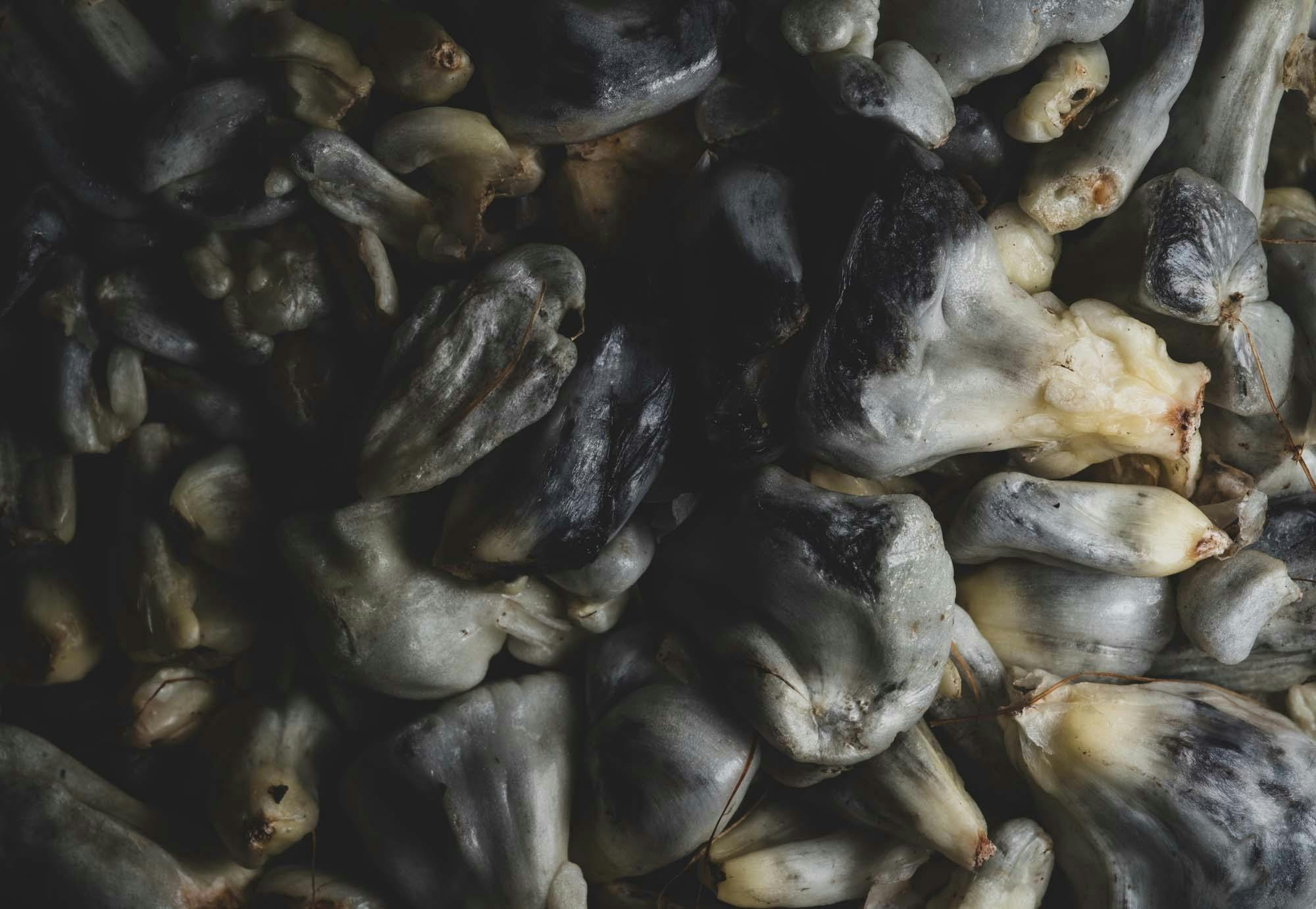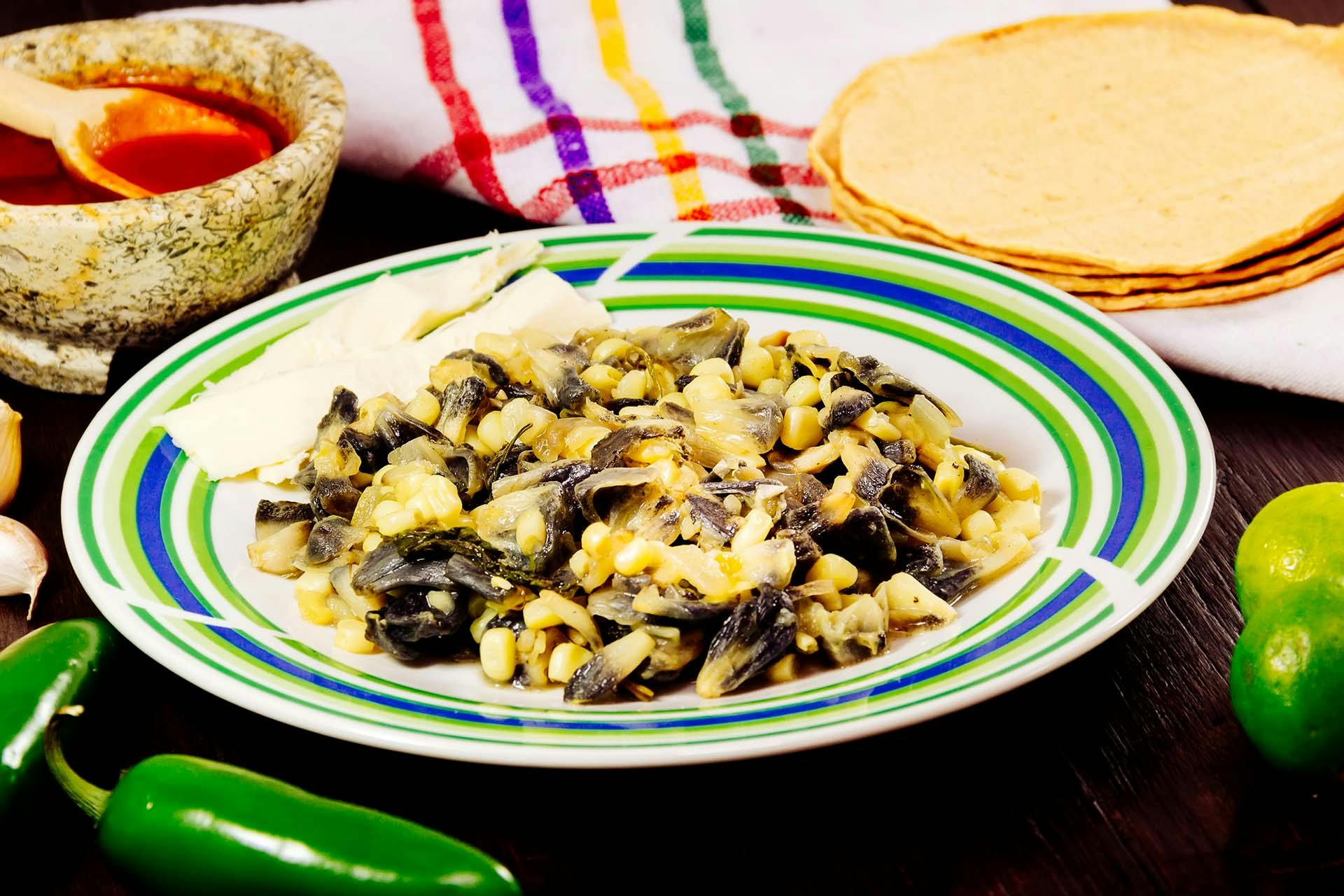Monday, April 18th 2022
What is Huitlacoche

Written by
Rafael Bracho
Get Instant Quotes
Find out today why thousands of expats use us as their trusted brokerage abroad. Click below to get instant quotes to all of our providers.
Quote NowJoin our newsletter!
What is Huitlacoche
The Mexican Truffle
<br/>Introduction
What is Huitlacoche
Though corn farmers in other parts of the world have thought of huitlacoche as a parasite contaminating their crop, Mexican farmers have long indulged in this savory mushroom. Now, it’s taking the fine-dining world by storm, and some corn farmers are even purposely infecting their crops with huitlacoche to harvest this new, lucrative commodity.
In this article, you’ll learn what huitlacoche is, its history, and what the future holds for this Mexican fungus.
<br/>
What is Huitlacoche?
What is Huitlacoche
Known as “corn smut” in English, huitlacoche—sometimes spelled “cuitlacoche”—is the byproduct of a plant disease on the corn kernels themselves. Its scientific name is Ustilago maydis, and it’s a pathogenic fungus that infects the corn to create tumors up to 10cm in size.
There is much debate about where the name huitlacoche comes from. It’s believed that this is a corruption of the original, Nahuatl name cuitlacoche, which may have referred to a bird that slept on cattle manure–either for its appearance to the bird, or for the fungus’ capacity of hindering the corn kernel’s development (thus, putting it to “sleep”).
<br/>Huitlacoche in the Ancient World
What is Huitlacoche
The human body is made up of 20 amino acids. We can naturally create 11 of them, but we’re missing about 9 other amino acids. These are called essential amino acids. There are foods that carry all essential amino acids: eggs, fish, and many other types of meat—though these were scarce for the ancient Aztec.
However, the ancient Aztec came up with an ingenious way of meeting their dietary requirements. In particular, huitlacoche is a source of lysine. Neither normal corn nor huitlacoche-infected corn carry all 9 of these essential amino acids, but when you wrap huitlacoche in a tortilla, you suddenly meet all your body’s needs.
Thus, huitlacoche was highly prized by the Aztec culture. They called it “the food of the gods”, and it was a staple in the prehispanic diet.
<br/>
Huitlacoche Today
What is Huitlacoche
Huitlacoche has recently been taking the fine-dining world by storm. The intense, earthy flavor has been compared to a cross between shitake mushrooms and black truffles—and a huitlacoche-infected ear of corn is valued at 50% more than a normal ear of corn.
Efforts to rebrand huitlacoche have been relatively successful. It’s also now referred to as the “Mexican truffle”, thanks to the efforts of Chef Josefina Howard at Rosa Mexicano restaurant—a fine-dining establishment on First Avenue in Manhattan, New York.
Now, it can be found across the world. Personally, I once ate huitlacoche quesadillas in Hilversum, a Dutch town right outside Amsterdam. The stigma against this delicacy is ending, and we’re seeing the birth of a new burgeoning market.
<br/>Conclusion
What is Huitlacoche
If you’ve never tried huitlacoche, you might want to give it a shot—as much for the experience as for its unique flavor. If you like mushrooms, then you’re going to love the Mexican truffle.
Get An Insurance Quote
Are you an expat living abroad? Compare insurance prices instantly now.
Fill in your email to get quotes for:
Health
Travel
Life
Home
Boat
Auto

